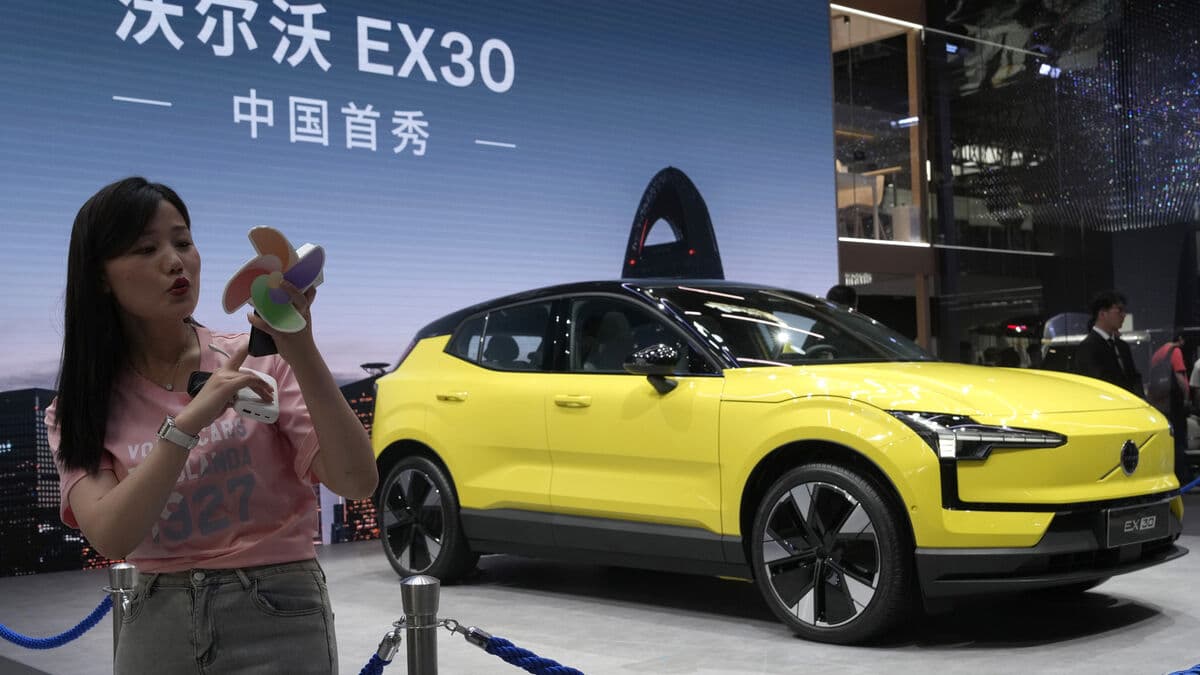The EU's decision to stop the sale of new cars with combustion engines from 2035 has long been criticized by countries with large car factories such as the Czech Republic, Slovakia, Hungary, Poland, and Italy.
On the other side are, among others, Sweden – not least with reference to the car manufacturers who, like Volvo, have chosen to invest heavily in electric cars for the future.
But at the same time, it is also the case that Volvo does not only have interests in western Sweden, but Volvo is controlled by a company that is Chinese. It is something that is worth taking into account when evaluating their views, says EU parliamentarian Charlie Weimers (SD) at a digital press conference.
Meeting in Berlin
The SD's party group ECR has chosen to focus on a repealed petrol ban when they got to choose topic and title for a debate in the EU parliament on Wednesday. Weimers expects the ban to be repealed in the end.
We hear how BMW and other major players in Germany are warning that the entire German car industry can go under if they do not take into account the situation they are in, says Weimers.
Germany's stance can be decisive. Chancellor Friedrich Merz urged on Monday to abolish the "incorrect ban" and will gather trade unions and companies for a major meeting in Berlin on Thursday about the future of the car industry.
Self-driving?
For the time being, the EU Commission is sticking to the ban decision.
In her major annual speech on the state of the union in September, President Ursula von der Leyen instead urged the car industry to invest heavily in an e-car – ecological, economic, and European.
Last week, she followed up with calls for self-driving cars.
New technology can save jobs and breathe new life into the sector. The future of the car – and the cars of the future – must come from Europe, she said in a speech in Turin.
Climate struggle
The car struggle is at the same time another example of the growing desire in both EU countries and the EU parliament to start backing away from the "green given" in order not to lose ground when it comes to jobs and growth.
The Commission has already chosen to further ease and postpone sustainability rules and measures against deforestation. At the next EU summit in a couple of weeks, a tough struggle awaits over climate targets for 2040 and the ambitions ahead of the major climate meeting COP30 in November.
We are getting closer to my prediction from the election campaign that the "green given" will be repealed, says a pleased Charlie Weimers.
Wiktor Nummelin/TT
Facts: EU and petrol cars
TT
After long disagreement, the EU countries agreed in the spring of 2023 that from 2035, in practice, they will not allow the sale of new petrol and diesel cars.
"By 2035, all new cars must be emission-free. If you can invent a combustion engine that does not emit anything before that, it's okay. But a technology that produces carbon dioxide will not be allowed", explained a commission official when the proposal was presented.
Along the way, the newly manufactured vehicle fleet must have reduced its emissions by an average of 15 percent by 2025 and 55 percent by 2030, compared to the situation in 2021.
The legislation includes that a review will be carried out in 2026.






